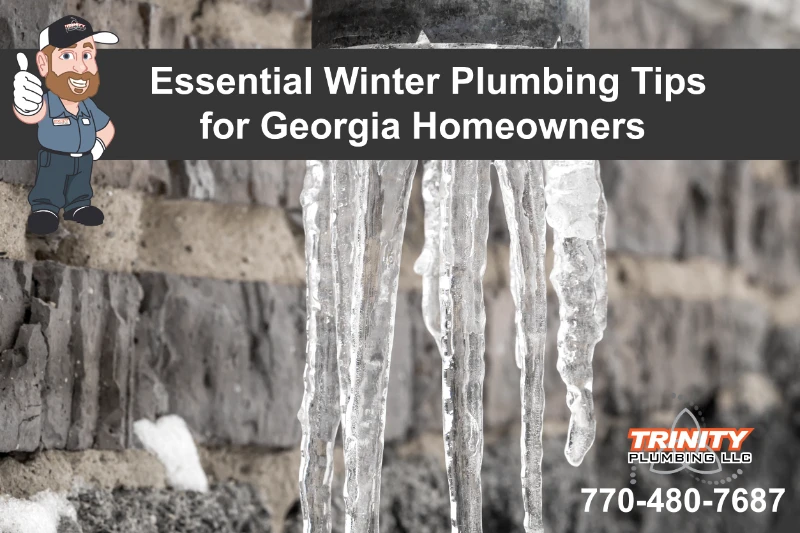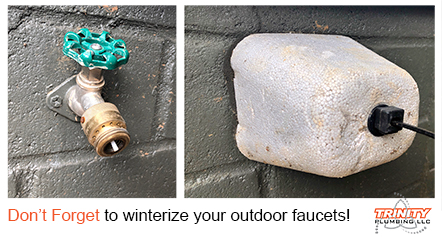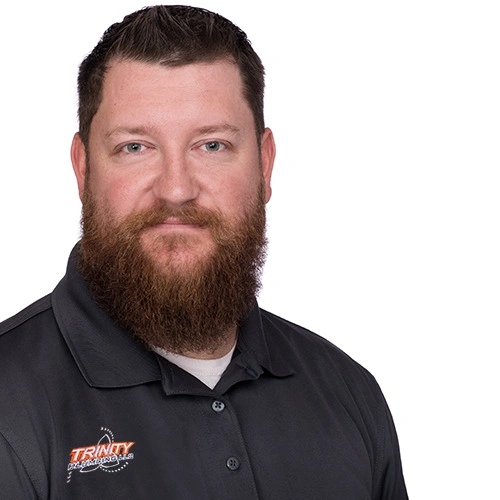
Winter can be hard on plumbing – especially when temperatures drop below freezing. Even though winters are milder in Georgia than in most other parts of the US, we still experience cold snaps and the occasional deep freeze. Don’t be caught off guard – frozen water and sewer pipes are not only inconvenient, they can be costly.
Here are essential winter plumbing tips for Georgia Homeowners:
Know Location of Primary Water Shut-off Valve
Know the location of your water main and how to shut it off. It’s like learning to change a tire – hope you never have to do it, but glad you know how when the time comes.
In the event of a frozen or burst pipe, being able to shut off the water quickly can minimize potential damage.
Let Faucets Drip in Extreme Cold
In periods of extremely cold weather, open faucets to allow a trickle of running water on the coldest nights. The continuous flow of water can help prevent pipes from freezing.
Disconnect and Store Garden Hoses
Remove garden hoses from outdoor faucets and ensure all residual water is drained. Store hoses indoors to prevent freezing, which can damage both the hose and the connected faucet.
Install Insulated Covers on Outdoor Faucets
Place insulated covers over outdoor faucets to shield them from freezing temperatures. This extra layer provides added protection against cold weather.

Keep Interior Temperature Consistent
Keep a steady temperature in your home, even if you’re not present. Set your thermostat to a level that prevents the interior from getting too cold, reducing the risk of frozen pipes. Note: Don’t let thermostat get below 55 degrees Fahrenheit.
Seal Leaks and Gaps Before Winter
Examine your residence for drafts and close off any openings or crevices in windows, doors, and walls. This helps keep cold air out and maintains a warmer environment for your plumbing.
Service Your Water Heater Before Winter
Schedule a maintenance check for your water heater. Ensure it’s in optimal condition to provide reliable hot water during the winter months.
Insulate Exposed Pipes and Vulnerable Areas
Ensure that pipes are properly insulated, especially in unheated or exposed areas such as attics, basements, and crawl spaces. This helps prevent freezing and reduces the risk of burst pipes. Note: Insulation slows the transfer of heat, but it doesn’t prevent pipes from freezing.
Schedule a Professional Plumbing Inspection
Before winter sets in, consider hiring a professional plumber to inspect your plumbing system to identify and address potential issues. This can help avoid plumbing emergencies.
By taking precautionary measures, Acworth homeowners can protect their plumbing and minimize the risk of winter-related issues. If you have any concerns or need assistance preparing your plumbing for winter, contact Trinity Plumbing.
FAQs About Frozen Pipes
For more information about frozen pipes, visit our blog post where we answer 8 Frequently Asked Questions About Frozen Pipes
- How do you know if pipes are frozen?
- How do you find an indoor frozen water pipe?
- What to do if your pipes are frozen?
- How to thaw a frozen pipe?
- What pipes are likely to freeze?
- Will frozen pipes thaw on their own?
- Why do frozen pipes break?
- What if your plumbing pipe bursts?







